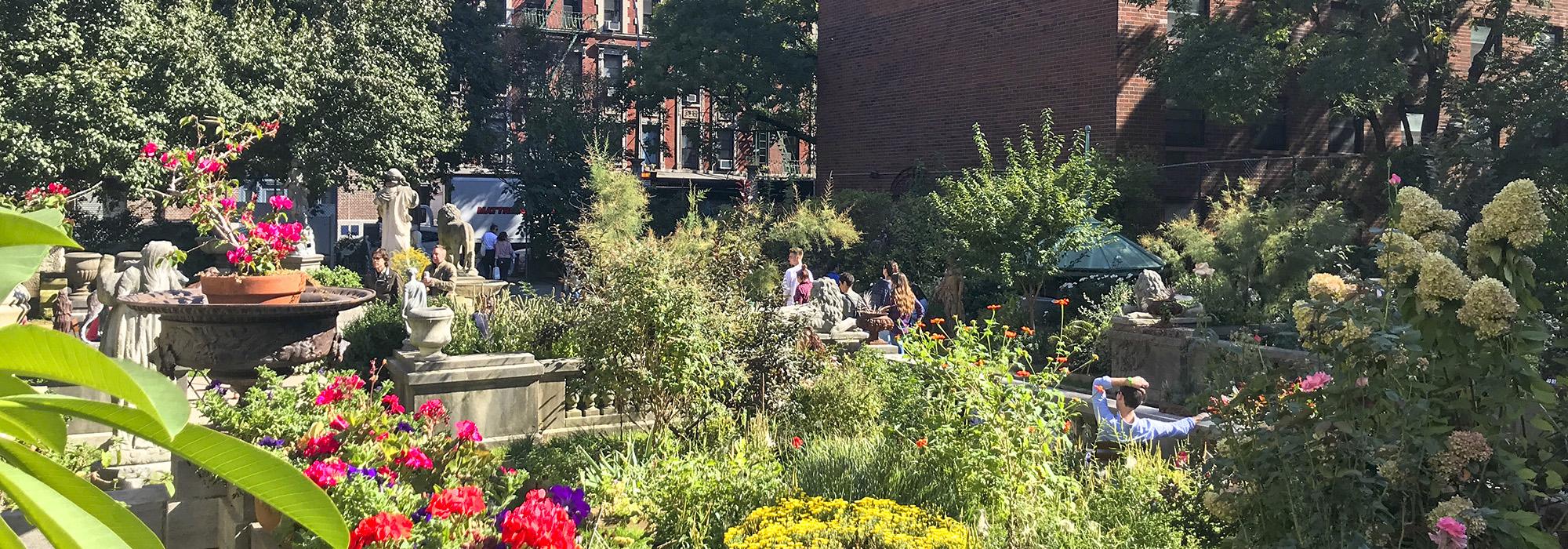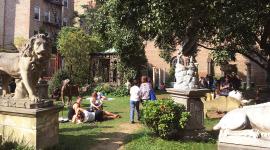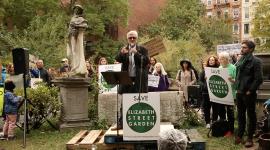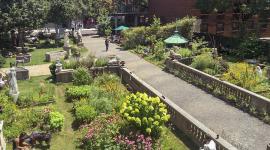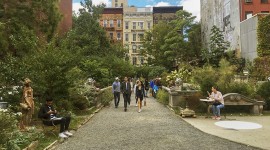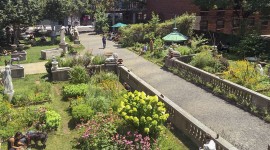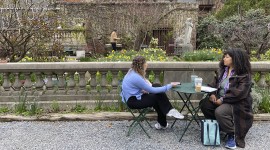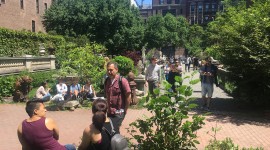A Setback for Elizabeth Street Garden
On April 10, 2019, the New York City Planning Commission approved the affordable housing project that is slated to replace the Elizabeth Street Garden, a community sculpture garden in Lower Manhattan’s North of Little Italy (Nolita) neighborhood that provides a rare oasis of green space to the local community. The go-ahead for the contentious Haven Green development, comprising 123 units of low-income housing and other market-rate retail space, means that the project will now move ahead to a public hearing before the City Council. If the project is approved, the one-acre green space would be reduced to about one-third its current size. The project is to be developed by Pennrose Properties, Habitat for Humanity NYC—which would locate its headquarters there—and RiseBoro, the non-profit formerly known as the Ridgewood Bushwick Senior Citizens Council. The LGBTQ senior services group SAGE would also have an office at the site.
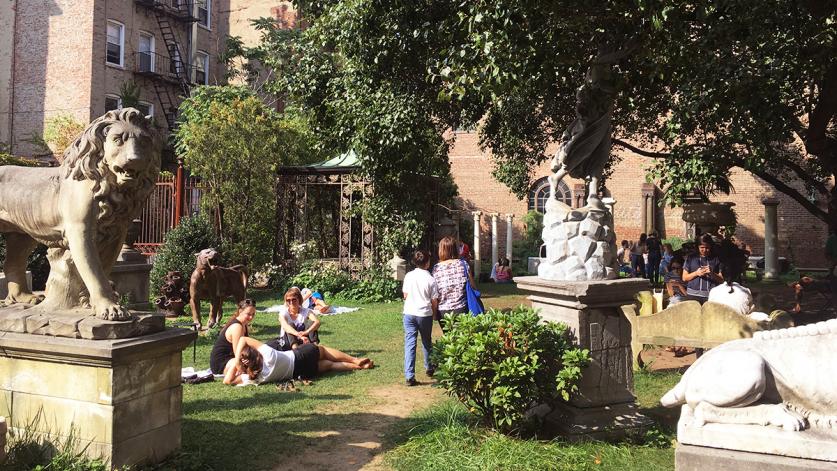
According to the local news source Patch, the commission was confronted with a difficult choice in the neighborhood, where a lack of undeveloped land meant that multiple programming needs had to be weighed against each other. Marisa Lago, chair of the City Planning Commission, believed that the high median income of the neighborhood made the search for land to site affordable housing all the more difficult, and she urged the developers to extend the accessible hours of the future green space beyond the previously proposed ‘nine-to-five.’
In mid-March, advocates for the Elizabeth Street Garden sued the city, arguing that the housing project failed to consider relevant areas of environmental concern in an attempt to bypass an Environmental Impact Statement (EIS). Furthermore, the development proposal invokes a state law offering tax incentives to projects that improve “slums or blighted areas,” a categorization that hardly describes the garden.
Echoing the work of Elizabeth ‘Liz’ Christy and the Green Guerrillas from the 1970s, the garden was conceived in the dual traditions of community activism and outsider art. Local gallery owner Allan Reiver leased the vacant plot from the City of New York in 1991 and transformed it into the cherished green space. Christy’s work in transforming abandoned sites into vegetable gardens sparked a nationwide urban community-garden movement, and her first work was honored in 2013 with a listing in the National Register of Historic Places as part of the Bowery Historic District. TCLF has pointed out that the Elizabeth Street Garden should likewise be evaluated as a contributing feature of the Little Italy Historic District, as the work of an outsider artist. The garden features several neoclassical sculptures and architectural elements, including a stone-and-granite balustrade designed by French landscape architect Jacques-Henri-Auguste Gréber. Reiver salvaged the balustrade from the 36-acre Lynnewood Hall estate in the Philadelphia area. A copper gazebo designed by Olmsted Brothers for Burrwood (the former home of Walter Jennings) is also displayed in the garden, donated in perpetuity (along with the balustrade) by Reiver.
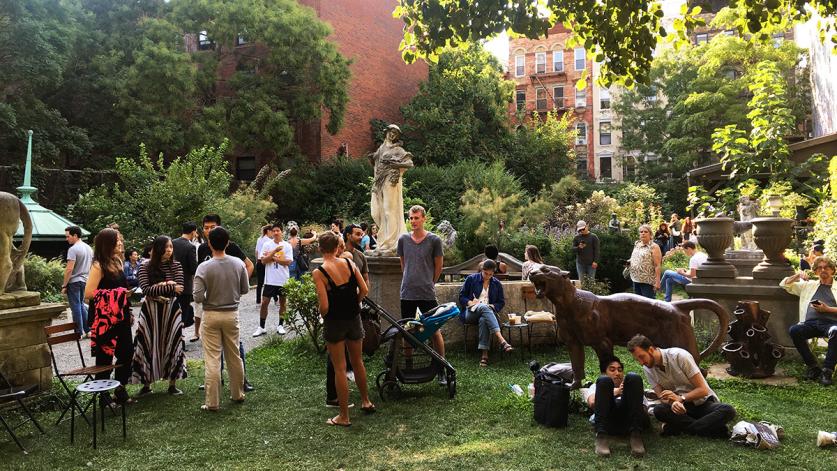
TCLF enrolled the Elizabeth Street Garden in its Landslide program in November 2018 after it was alerted to the Haven Green development project. Donations to the garden’s legal fund are now being accepted. Supporters can also join a letter-writing campaign to let Habitat NYC know that the garden should be saved, and can sign a petition—which already numbers more than 10,000 signatures—asking the city to halt its efforts to destroy this significant cultural landscape.



